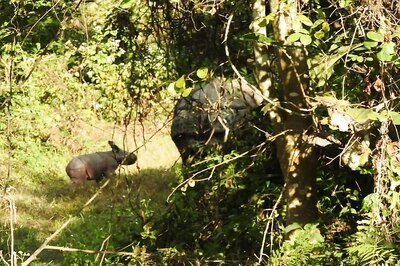
views
The Aedes aegypti mosquito, known to spread mosquito-borne diseases like Zika virus, dengue, yellow fever and chikungunya, has been found for the first time in Nebraska, United States. The Nebraska Department of Health and Human Services (DHHS) in collaboration with Four Corners Health Department has recently identified Aedes aegypti mosquitoes in York County, ABC-affiliated TV station KLKN reported.
“Aedes aegypti can carry and transmit various diseases that can have serious health consequences like Zika virus, chikungunya, dengue and yellow fever, and that is of concern to public health officials,” State Epidemiologist Dr. Tom Safranek was quoted as saying.
“However, the transmission of these pathogens would require a person currently infected with such a disease to be bitten by an Aedes aegypti mosquito and then that mosquito would need to bite another uninfected person. The risk of these infections to local residents is low but also dependent on the presence or arrival of an infected individual in the area,” he added.
Safranek said the discovery underscores the “importance of our mosquito trapping system”, adding tracking and monitoring the types of mosquitoes that exist in Nebraska communities is critical because it “helps us identify potential public health implications and implement prevention measures to reduce risk.”
“Four Corners Health Department is working closely with DHHS and vector-borne disease specialists from the Centers for Disease Control and Prevention regarding control of these mosquitoes and risk reduction approaches,” Laura McDougall, Executive Director of Four Corners Health Department said.
Said to have originated in Africa, the Aedes aegypti mosquito is now found across the world in areas with tropical, subtropical and temperate climates. Health officials have said the mosquitoes had not yet been tested to see whether they are carrying the viruses that cause these diseases, according to Newsweek.
They also said that while the Aedes aegypti mosquitoes bites primarily in the daytime and only feeds on people. It doesn’t have the ability to fly very far, only about 500 feet.
The Centers for Disease Control and Prevention says that “studies suggest that concentrations of DEET above approximately 50% do not offer a marked increase in protection time against mosquitoes; DEET efficacy tends to plateau at a concentration of approximately 50%.”
Earlier this year, international researchers had warned that 49 percent of the world’s population was at risk of being affected by dengue, chikungunya, zika, malaria and other mosquito-borne diseases by 2050.




















Comments
0 comment